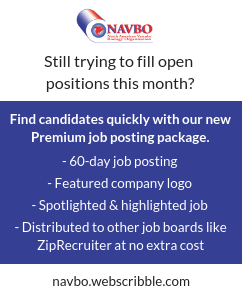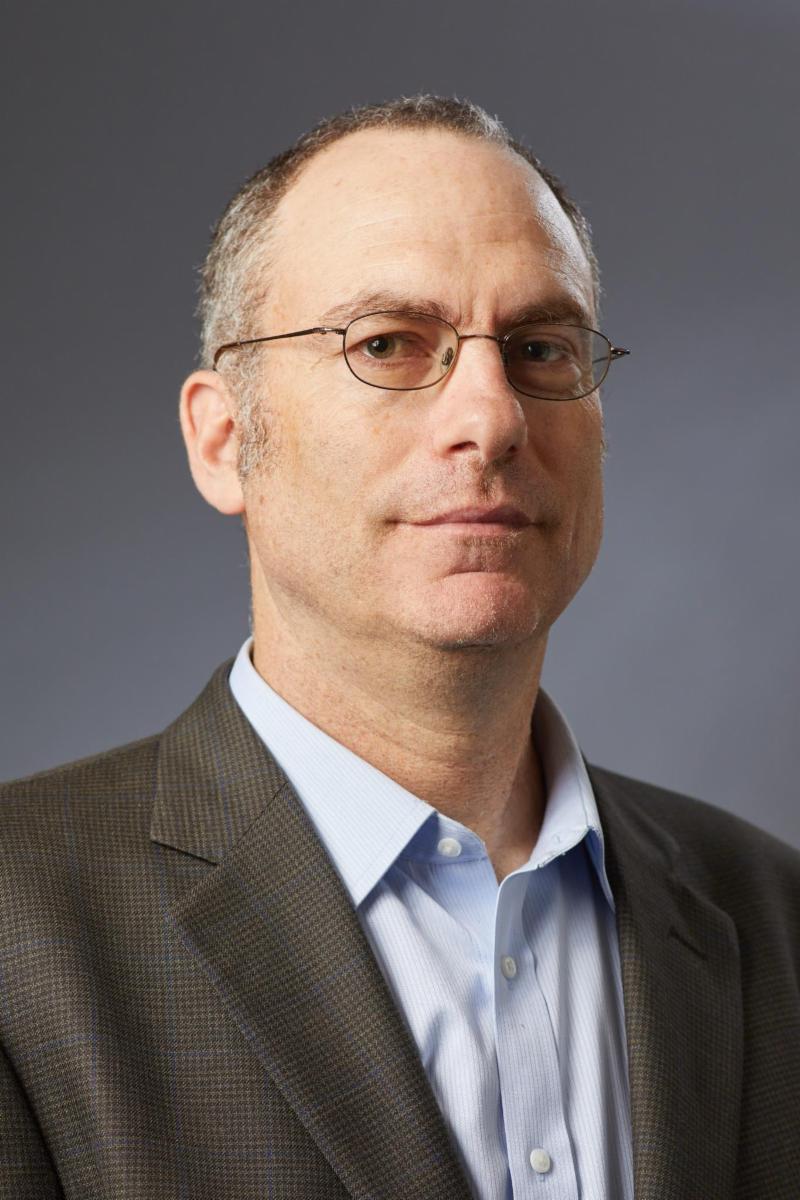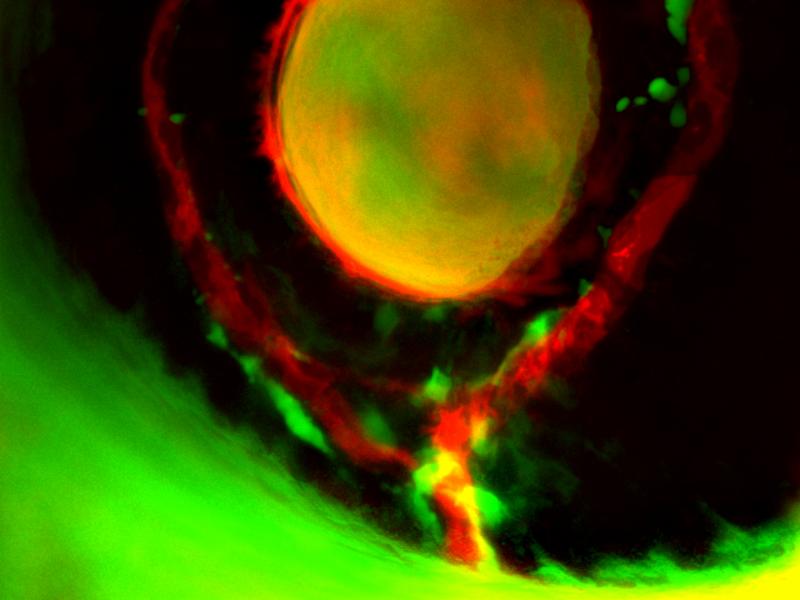Vascular Biology
Monterey, CA
Vasculata 2019
Medical College of Wisconsin
July 13 - 18, 2019
|
|
Partner Network Advantage - New Job Board Feature
|

Why post your job on NAVBO's career center rather than going directly to the larger job networks?
Pricing on the mass job boards can vary, but to get a job noticed you typically have to sponsor it for $5 - $10 per day, which can add up quickly especially since you also pay for each click the job gets. When you add it all together, you could be spending up to $45 per day on your job posting. But, when posting a job on NAVBO's career center, you simply pay a flat fee! The Premium package includes our Exclusive Extended Partner Network - which means the jobs are broadcast to sites like ZipRecruiter and Jobs2Careers and more for a flat fee.
With special member pricing, you can post a job for as low as $300 with this Partner Network. You never pay for each click, just the flat fee on the NAVBO career center. In addition, the Premium package includes a 60-day job posting making it a great value. The Premium packages also offer features like having your company's logo featured on the career center homepage, having your job appear first in search results, and more.
|
Shop at Amazon?
Help Support NAVBO
|
Your data privacy and security are important to NAVBO. To that end, we have updated our privacy policy to reflect recent privacy and security regulation implementations and changes.
Please review our policy as time permits so you have a complete understanding of the data we have, why we have it, and how we use it.
Part of the updates relate directly to the European Union's new General Data Protection Regulation (GDPR) that went into place May 25. The GDPR seeks to improve the transparency of data usage and give end users more control over their own data. We believe these changes are important and will be compliant with the GDPR regulations.
Contact NAVBO if you have any questions or to
change your communication preferences.
Please note, you can unsubscribe to this newsletter at anytime by clicking on the SafeUnsubscribe in the footer.
|
|
 |
|
|
Today's Webinar features Daniel Greif
|
 Pericyte ALK5/TIMP3 Axis Contributes to Endothelial Morphogenesis in the Developing Brain Pericyte ALK5/TIMP3 Axis Contributes to Endothelial Morphogenesis in the Developing Brain
Join us today, June 13, at 1:00pm EDT for a webinar featuring Dr. Daniel Greif of Yale School of Medicine. His presentation will reveal a key role for pericyte ALK5 in regulating brain endothelial morphogenesis and a substantial therapeutic potential for TIMP3 during neonatal brain hemorrhage.
NAVBO Webinars are free to current NAVBO Members.
Don't miss our next webinar on July 11 with Vicki Bautch, University of North Carolina at Chapel Hill
And don't forget you can watch archived webinars as well - go to
|
|
Live Stream Vasculata 2019 to Your Institution
|

Vasculata 2019 - July 15-18
Medical College of Wisconsin
If you can't make it to Milwaukee, bring Vasculata to your institution!
Live stream Vasculata to your institution and interact with the speakers in a Q&A session. You'll also have access to the mobile app, which will contain supporting materials for lectures.
Your group will have access to the keynote talks by
Luisa Iruela-Arispe and
Please note - we are still able to accept abstracts for poster presentation on a space available basis.
|
|
Travel Award to the Angiogenesis GRC
|
NAVBO will Present a $500 Travel Award to a Trainee Member
|
|
Congratulations to Lymphatic Forum Awardees!
|
|
Travel and Poster Awards were presented to trainees at the Lymphatic Forum 2019
Once again the joint effort of NAVBO and the Lymphatic Education & Research Network (LE&RN) was a huge success! A special thanks to the organizers: Drs. David Zawieja, Stanley Rockson and Jan Kitajewski. Dr. Kitajewski is pictured below presenting the NAVBO sponsored awards. The meeting boasted 180 attendees and over 100 abstracts presented in sessions and as posters.
Travel Awards were sponsored by LE&RN and NAVBO and poster awards by LE&RN and ACS
Pharmacology and Translational Science.
Above are NAVBO Travel Award recipients Laszlo Balint of the Hungarian Academy of Sciences and Semmelweis University and April O'Brien of Texas A&M Health Science Center. To the right is Jorge Castorena-Gonzalez of the University of Missouri. Jorge co-organized the Young Investigator Session and won the ACS Poster Award.
Look for upcoming news about the Lymphatic Forum 2021 in Canada!
|
|
Seeking Postdoctoral Fellows for Education Committee
|
The Education Committee is looking for postdoctoral fellows to join the committee. This is your opportunity to make a difference by enhancing the trainee member's experience, network with a great group of scientists, and gain leadership experience with this great organization! If you're interested in joining us, please apply today!
Applicants should expect to serve a three-year term. Applications must include: your CV, a letter from your supervisor attesting to your leadership quality, a brief statement from you concerning your commitment to the vascular biology community and this society, and what you would like to bring to this committee. Please forward this information to (
[email protected] )
by June 14, 2019.
If you have further questions about the Education Committee or the application process, please feel free to contact Bernadette (
[email protected]) or Mary Jo Mulligan-Kehoe, the Committee Chair (
[email protected]).
|
What sets you apart...in a good way?
"No one deserves to go through life not being able to see their worth." So avers
#UniqueScientists, a website devoted to celebrating diversity in science. The team behind #UniqueScientists seeks to encourage diversity in the scientific realm by sharing the personal stories of contributing scientists from around the world. The site encourages readers and contributors alike to question the notion that self-identity should be a determining factor in one's chosen career. NAVBO trainees who meet the dual criteria for submitters (Are you a human? and Are you a scientist...?) are invited to
consider submitting their story for inclusion on the site.
Get out there and represent vascular biology!
|
|
Call for Papers - Single-Cell Anaylysis
|
A Frontiers Research Topic initiated by NAVBO
Recent advances in analyzing tissues and organs at the single cell (SC) level are revolutionizing our understanding of organ development, biology, and disease. Previously, the genetic composition or transcriptional profiles of cells was based on sequencing DNA or RNA from a large number of cells, but this approach loses information on the heterogeneity of individual cells. Sequencing DNA and RNA from individual cells preserves heterogeneity, and technological advances have made these techniques highly accessible.
A recent analysis - available
here - of the SC extramural research funded by the NIH, either through NIH-initiated programs focused on SC or initiated by extramural investigators, revealed the paucity of such analyses related to vascular cells compared to a variety of other cells and tissues. This Research Topic is seeking to galvanize interest in SC applications related to the field of vascular cell biology and highlight original research related to SC analyses of vascular related cells, under normal or diseased conditions. We seek to understand the specific challenges associated with studying vascular cells, and how advances in SC approaches could benefit vascular fields. Submissions are due September 30, 2019.
More information can be found here on the Frontiers web site.
|
 Introducing ACS Pharmacology & Translational Science Introducing ACS Pharmacology & Translational Science
ACS Pharmacology & Translational Science
is a new journal from the American Chemical Society publishing high-quality, innovative research across the broad spectrum of biological sciences.
|
Feedback Welcomed!
Have you visited the NAVBO YouTube Channel?
Click Here
The included playlists were compiled by members of the Education Committee led by Drs. Michael Dellinger and Luis Hortells. We would love to hear feedback from our members. We encourage trainees to view them (each video was reviewed for accuracy by members of the committee).
Please feel free to recommend a video that you have seen on YouTube; we'll review it and perhaps add it to our channel.
|
Welcome to our New Members:
Umesh Bhattarai, LSUHSC Shreveport
Charmain Fernando, Oklahoma Medical Research Foundation
Quanyin Hu, Massachusetts Institute of Technology
Menggui Huang, University of Pennsylvania
Katarzyna Kurylowicz, Oklahoma Medical Research Foundation
Matteo Malinverno, IFOM, FIRC Institute of Molecular Oncology Foundation
Gabriel Mirhaidari, The Ohio State University/Nationwide Children's Hospital
Marco Monroy, UT Southwestern Medical Center
Martina Rudnicki, York University
Matthew Scott, LSUHSC Shreveport
Anita Senk, University of Bern
Jacob Zbinden, Nationwide Children's Hospital
|
|
Recent Publications by NAVBO Members
|
| Type I Diabetes Delays Perfusion and Engraftment of 3D Constructs by Impinging on Angiogenesis; Which can be Rescued by Hepatocyte Growth Factor Supplementation
Cellular and Molecular Bioengineering
The biggest bottleneck for cell-based regenerative therapy is the lack of a functional vasculature to support the grafts. This problem is exacerbated in diabetic patients, where vessel growth is inhibited. Read more A disintegrin-like and metalloproteinase domain with thrombospondin type 1 motif 9 (ADAMTS9) regulates fibronectin fibrillogenesis and turnover
Journal of Biological Chemistry
The secreted metalloprotease ADAMTS9 has dual roles in extracellular matrix (ECM) turnover and biogenesis of the primary ciliumduring mouse embryogenesis. Its gene locus is associated with several human traits and disorders, but ADAMTS9 has few knowninteracting partners or confirmed substrates. Read more Secreted metalloproteases ADAMTS9 and ADAMTS20 have a non-canonical role in ciliary vesicle growth during ciliogenesis
Nature Communications
Although hundreds of cytosolic or transmembrane molecules form the primary cilium, few secreted molecules are known to contribute to ciliogenesis. Here, homologous secreted metalloproteases ADAMTS9 and ADAMTS20 are identified as ciliogenesis regulators that act intracellularly. Read more CD34+KLF4+ Stromal Stem Cells Contribute to Endometrial Regeneration and Repair
Cell Reports
The regenerative capacity of the human endometrium requires a population of local stem cells. However, the phenotypes, locations, and origin of these cells are still unknown. Read more The Transcription Factor ERG Regulates Super-Enhancers Associated With an Endothelial-Specific Gene Expression Program
Circulation Research
RATIONALE: The ETS (E-26 transformation-specific) transcription factor ERG (ETS-related gene) is essential for endothelial homeostasis, driving expression of lineage genes and repressing proinflammatory genes. Loss of ERG expression is associated with diseases including atherosclerosis. Read more The heparin binding domain of von Willebrand factor binds to growth factors and promotes angiogenesis in wound healing
Blood
During wound healing, the distribution, availability and signaling of growth factors (GFs) are orchestrated by their binding to extracellular matrix components in the wound microenvironment. Extracellular matrix proteins have been shown to modulate angiogenesis and promote wound healing through GFs binding. Read more Standardization of methods to quantify and culture endothelial colony-forming cells derived from peripheral blood: Position paper from the International Society on Thrombosis and Haemostasis SSC
Journal of Thrombosis and Haemostasis
Read more Zebrafish facial lymphatics develop through sequential addition of venous and non-venous progenitors
EMBO Reports
Lymphatic vessels are known to be derived from veins; however, recent lineage-tracing experiments propose that specific lymphatic networks may originate from both venous and non-venous sources. Despite this, direct evidence of a non-venous lymphatic progenitor is missing. Read more |
|
Federal legislative updates from Research!America
News
from the desk of Mary Woolley, President and CEO of Research!America, includes concerns about the future of fetal tissue research in the US, reminders about the impact of the 1980 Bayh-Dole Act on technology transfer, and exhortations for us scientists to advocate for robust federal funding of research as the FY20 budgeting process rolls out. Research!America and its partners in advocacy plan to meet on June 26, 2019, for a Capitol Hill briefing, examining advances in research aimed to improve delivery of care to patients living in rural areas. Details and registration info may be found
here
.
Registration opens for 2019 AAMC Annual Meeting in Phoenix
The American Association of Medical Colleges has released
programming and registration details
for its 2019 meeting, scheduled for November 8-12 in Phoenix. The AAMC meeting aims to
tackle significant issues in medical education, patient care, and biomedical research. Keynote speakers includeBryan Stevenson, JD, founder and executive director of the Equal Justice Initiative and author of Just Mercy; Jon Meacham Presidential historian and Pulitzer Prize-winning author of American Lion: Andrew Jackson in the White House and The Soul of America: The Battle for Our Better Angels; and Amy Edmondson, PhD, Author and Novartis Professor of Leadership and Management, Harvard Business School.
Remarkable therapy; astonishing expense
Bloomberg Opinion's Max Nisen, writing in
The Washington Post, examines the ramifications of the multimillion dollar price tag attached to Zolgensma, Novartis AG's one-time gene therapy treatment for spinal muscular atrophy that was approved by the FDA in May. While Zolgensma offers the prospect of curing a disease that is typically fatal before age two, critics fear that the monumental price will become an accepted reference point for new gene therapies in the pipeline. "Miracle cures don't do much good, "notes Nisen, "if they aren't accessible."
|
|
|